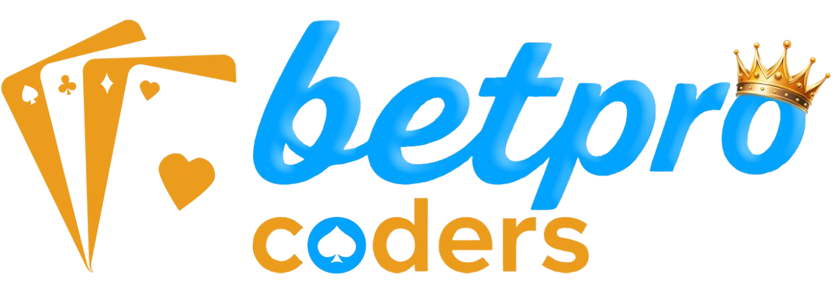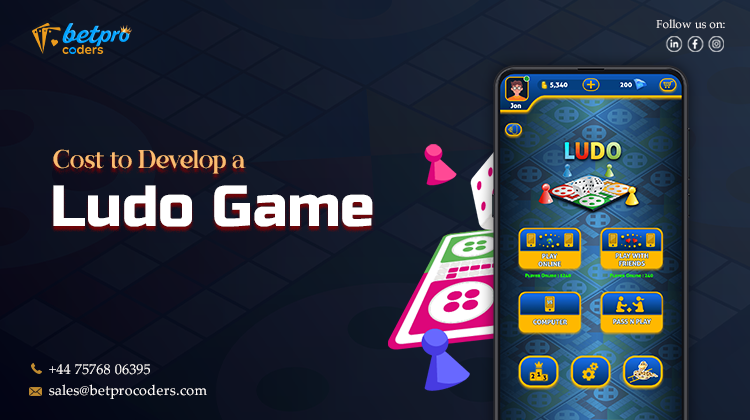The timeless board game of Ludo, beloved by millions across the globe, has found new life in the digital realm. As more people turn to their smartphones and tablets for entertainment, developing a Ludo game app has become an appealing venture for many game developers. Are you also one among those entrepreneurs who want to develop such an online gaming app but looking for what it costs to develop a Ludo game in 2025?
In this blog, we’ll explore the various factors influencing Ludo game development costs and provide a realistic estimate of what you might expect to spend.
Contents
What is the Ludo Game Development Process?
While discussing the concept of Ludo game development cost, we have to be well aware of what goes into the making of a Ludo game. Ludo is an old English game played using four tokens that move over a board, depending on the rolls of the dice; it is a simple game, though provides a strategic concept. Similarly, when we consider casino game development, such as Poker Game Development, we must understand the complexities involved in recreating the strategic, competitive, and interactive elements of poker. Translating this experience into a digital format involves several key components:
1. Game Design and Conceptualization
This includes the game development rules, the way the game is played, how the graphics are going to look, and how the interface of the game is going to be. For Ludo, the goal is normally to have an aesthetically pleasing board game that has easy controls and mechanics.
2. Development
This also involves writing code for gameplay, incorporating the feature involving a roll of dice, and incorporating the multi-player functions if any. The development also includes OP KO which stands for ‘Over Player Knee’ and designing the backend for players’ data and game data.
3. Testing
It is crucial to perform plenty of tests so that it can be appropriately tested on various platforms and devices and would be fun and free of bugs.
4. Launch and Marketing
After development, deployment of the game to various online platforms like the App Store and Google Play Store requires the formulation of promotion and marketing materials.
Maintenance and Updates
In post-launch support, code bugs are repaired, updates given, and in some cases, new content is introduced to enhance the playing experience.
Factors Influencing Ludo Game Development Cost
1. Game Complexity
The complexity of the game greatly determines the amount of money that has to be spent to develop the game. A Basic Version which would contain standard rules on product usage, should have minimal features that will be cheaper to develop. This type might involve the main title gameplay without extra frills and thus is usually cheaper to produce.
In contrast, adding Advanced Features such as online multiplayer, high-quality graphics, or customizations like in-app purchases can drive up costs substantially. These enhancements require more intricate programming, design work, and testing, leading to increased development expenses.
2. Platform
The nature of development costs is influenced as well by the platform selected for the game. It is less efficient to build a game that will be compatible both with iOS and Android since for this you need to create two versions of the game, which will have their requirements and rules of creation and functioning.
Cross-platform frameworks especially Unity or Unreal Engine can be more helpful in some cases I suppose. These frameworks enable the developer to code a single version of the application that can run on several systems, possibly at a lower cost and with less overheads than if a separate version were written for each system.
3. Design and Graphics
The quality of design and graphics plays a crucial role in determining the cost of a Ludo game. Basic Graphics involve simple game designs and minimal animations, which are less costly to produce. This approach keeps the game’s aesthetic straightforward and affordable.
However, opting for Custom Graphics which include detailed illustrations, animations, and interactive elements can significantly increase costs. Custom graphics require more time and resources to develop, resulting in a higher price tag for the project.
4. Development Team
The costs depend on the expertise and geographic location of your team of developers. Though Hiring Freelancers may look lucrative in the beginning and/or short term and may look faster in terms of implementation, it may have certain issues or disadvantages in terms of coordination and quality.
Freelancers do not get the level of end-to-end service that is rendered to them by a more formal team. On the other hand, Development Agencies provide a whole range of services, starting from design, going through development, and up to project management, which usually results in higher quality and a more united development process, still, at the price which might be considerably higher.
5. Multiplayer Functionality
With the inclusion of multiplayer features, the cost of the game may be impacted. Local Multiplayer which enables players on the same device or on the same network system to play is generally cheaper to develop. It has less complicated backend requirements and is easier to provision.
Unlike, Online Multiplayer is much more sophisticated because it requires real-time connection over the internet and servers. This functionality requires frequent updates and good server management, and this often proves very expensive and adds to development costs.
6. Backend Infrastructure
The backend support that is necessary to create a Ludo game depends on the level of the game. For less complicated games, A Basic Backend can be used and it only asks for a few server services to maintain the database and progress of the game.
Whereas, an Advanced Backend is required for complex games such as games with leaderboards, players’ profiles, and in-app purchase integration. The use of this advanced setup structure demands more enhanced architecture of server support and thereby incurs more cost.
7. Testing and Quality Assurance
Quality assurance that helps to control the user experience and runs tests can be expensive. Manual Testing consists of one or several human testers who play the game and look for the bugs and problems in it, and such an approach is rather slow and costly.
On the other hand, Automated Testing involves the use of tools to conduct tests on the game and the results are quick and accurate. While automated testing needs investment in tools and configuration at the first instance, it can be more efficient and cost-effective in the long run as the errors are detected early and more comprehensively.
8. Marketing and Launch
the cost of marketing and launching a Ludo game can be expressed in different ways. There are fundamental marketing concepts like the App Store optimization and initial advertising concepts found under Basic Marketing. The first strategy is to aim at achieving some form of presence at the appropriate level with minimum expense.
On the other hand, Advanced Marketing refers to an elaborate form of marketing like social marketing, promoting the product via celebrities or other personalities, and other extensive promotion avenues. This method while can help to gain a lot of traffic and a wider audience is more costly in terms of fare.
Estimated Cost Breakdown for Developing a Ludo Game in 2025
The cost to build a Ludo gaming app can be between $10,000-$70,000 depending on the above-mentioned factors. Here’s a general breakdown of the cost of developing a Ludo game, considering different complexities and features:
a. Basic Version:
- Design and UI/UX: $2,000 – $5,000
- Development: $5,000 – $10,000
- Testing: $2,000 – $3,000
- Launch and Marketing: $1,000 – $3,000
- Total: $9,000 – $21,000
b. Advanced Version:
- Design and UI/UX: $5,000 – $10,000
- Development: $15,000 – $30,000
- Testing: $3,000 – $6,000
- Launch and Marketing: $5,000 – $7,000
- Total: $26,000 – $53,000
c. Multiplayer and Backend Features:
- Additional Development: $10,000 – $20,000
- Advanced Backend: $5,000 – $15,000
- Ongoing Maintenance: $1,000 – $3,000 per month
Conclusion: Why Choose BetPro Coders for Your Ludo Game Development?
Navigating the landscape of game development can be complex and costly, but with the right partner, you can turn your vision into a successful reality. BetPro Coders stands out as a premier game development company, renowned for delivering high-quality, engaging, and cost-effective game solutions.
Whether you want to develop a simple or complex online Ludo app that supports multiplayer, our team of programmers offers full-suite service from concept to and even post-launch. By choosing BetPro Coders, you benefit from:
Experienced Professionals: A team with extensive experience in game development, ensuring top-notch quality game development services with innovative features.
Custom Solutions: Tailored development processes that fit your specific needs and budget.
End-to-End Service: From initial design and development to marketing and ongoing support, BetPro Coders covers all aspects of game creation.
Cost-Effective Pricing: Competitive pricing that provides value without compromising on quality.
If you’re ready to bring your Ludo game idea to life and make a mark in the digital gaming world, BetPro Coders is your ideal partner.
Reach out today to discuss your project and get a detailed cost estimate that aligns with your vision and goals. With us, your Ludo game will not only meet but exceed expectations.
FAQ
Q1. What is the average cost to develop a Ludo game app?
Answer: The cost can range from $10,000 to $70,000 depending on various factors such as complexity, features, and platform.
Q2. Can I develop a Ludo game app for both Android and iOS?
Answer: Yes, using cross-platform development tools allows you to create a Ludo game that works on both platforms.
Q3. What programming languages are commonly used for developing Ludo games?
Answer: Popular languages include C++, C#, Java, and Swift, depending on the platform chosen.
Q4. How can I monetize my Ludo game app?
Answer: Monetization strategies include in-app purchases, ads, subscriptions, and offering premium versions of the game.
Q5. Is market research necessary before developing a Ludo game app?
Answer: Yes, conducting market research helps understand competition and identify opportunities for differentiation.
Q6. What features should I include in my Ludo game app?
Answer: Key features may include multiplayer functionality, customizable avatars, in-app purchases, and engaging graphics.









Leave a comment